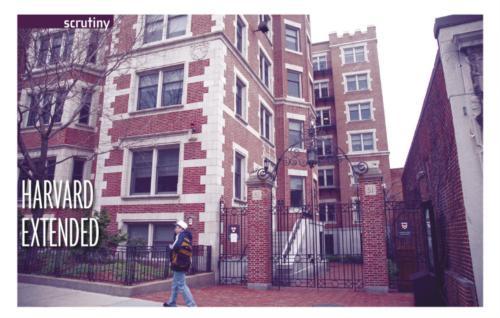
A Harvard Extension
It was the epitome of the “Harvard moment.”
A bright-eyed freshman hoping to soak in the University’s splendor trekked north of the Yard. He headed to an auditorium at Harvard Law School, where Supreme Court Justice Antonin G. Scalia, an alumnus of the Law School, was slated to deliver a speech on interpreting the Constitution.
A jaded upperclassman probably would have decided that Austin Hall was too far away, and that the event was at far too inconvenient of a time, even to see someone as notorious (and frequently hilarious) as Scalia. But for Hunter S. Gaylor, the speech was a “once in a lifetime opportunity.”
With the sudden, serendipitous twist characteristic of most “Harvard moments,” the event turned into just that. Gaylor somehow found himself in Scalia’s limousine, en route to dinner with the jurist at the Charles Hotel. “After the speech I was talking to this gentleman, you know, just being polite,” he says, smiling at the memory. “Turns out, the gentleman was Nelson Shanks. He’s probably a nobody to you, but he’s actually Justice Scalia’s portrait artist.” Apparently impressed, the painter had extended a dinner invitation to the eager freshman.
But at dinner, Gaylor wasn’t able to offer Scalia musings on life in the Yard or stories of nightly dinners in Annenberg. And that’s because, although he’s 18 years old, a liaison for an IOP study group, and a frequenter of Harvard Republican Club events, Gaylor is not a freshman at the College. The Florida native is one of few official college-aged freshmen students at the Harvard University Extension School.
The school’s wide-open application process might seem paradoxical to some, especially when considered in the context of many of the University’s other schools, which have fought diligently for decades to maintain the nation’s most statistically exacting admissions standards. Last year, the College, for instance, admitted a mere 7.1 percent of applicants. Harvard Law School typically admits 11 percent of applicants, and Harvard Medical School admits just over 3 percent of candidates seeking admission.
But if the story of Gaylor’s dinner illustrates anything, it is the degree to which the Extension School offers its students nearly unfettered access to some of Harvard’s most prized resources—world renowned libraries, a distinguished faculty, and an impressive body of speakers—without the hassle of the Common App, the LSAT, or the MCAT.


